
The Republican Scout Association of Belarus is one of several nationwide Scouting associations in Belarus. It is the body recognized by the World Organization of the Scout Movement from 1998 to 2004 and again from September 5, 2010.

The Organisation of Bulgarian Scouts, the primary national Scouting organization of Bulgaria, became a member of the World Organization of the Scout Movement in 1999; work towards World Association of Girl Guides and Girl Scouts membership recognition remains unclear. The coeducational Organisation of Bulgarian Scouts had 2,109 members as of 2011 and 304 members as of 2021.

Estonian Scout Association is the primary national Scouting organization of Estonia, became a member of the World Organization of the Scout Movement in 1996. The coeducational Eesti Skautide Ühing has 1,337 members as of 2011.

The coeducational Organization of the Scout Movement of Kazakhstan was officially founded in 1992, and received World Organization of the Scout Movement recognition on January 16, 2008. In 2011, it had 1,223 members.
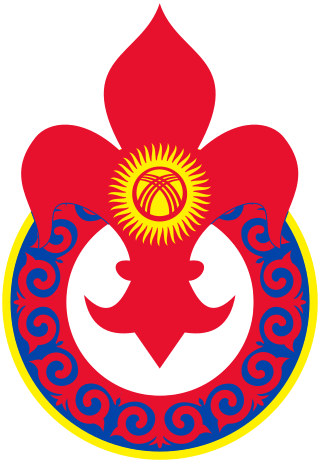
Scouting in Kyrgyzstan was founded in November 1994 and is not yet a member of the World Organization of the Scout Movement, but is working toward WOSM recognition. Kyrgyzstan has multiple Scout associations, several of which are members of Kyrgyz Respublikasynyn Skaut Kengesh, the Kyrgyz Republic Scouting Union.

The Mongolyn Skautyn Kholboo, the national Scouting organization of Mongolia, was founded in 1992, and became a member of the World Organization of the Scout Movement in 1994. The coeducational Mongolyn Skautyn Kholboo has 8,822 members as of 2011.

The Ittihodi Scouthoi Tojikiston, the national Scouting organization of Tajikistan, was founded in 1993, and became a member of the World Organization of the Scout Movement (WOSM) on April 18, 1997. The coeducational Ittihodi Scouthoi Tojikiston has 511 members as of 2011. Tajikistan is the only one of the three Persian nations thus far whose Scouting is recognized by WOSM.

The Eurasian Scout Region was the divisional office of the World Scout Bureau of the World Organization of the Scout Movement, headquartered in Kyiv, formerly located at Gurzuf near Yalta-Krasnokamianka, Ukraine, with a branch office in Moscow. All the formerly communist states of Central and Eastern Europe, Central Asia and the Soviet Union have developed or are developing Scouting in the wake of the renaissance in the region. These include most of the successor states to the Soviet Union, in the Commonwealth of Independent States. The 1996/99 Triennial Report of the World Scout Committee/World Organization of the Scout Movement shows that WOSM is aggressively pursuing the organization of Scouting activities in the countries of the former Soviet Union, according to its own vision.

Scouting in Ukraine received World Organization of the Scout Movement (WOSM) recognition in July 2008. The Eurasian Region headquarters is located on Ukrainian territory.
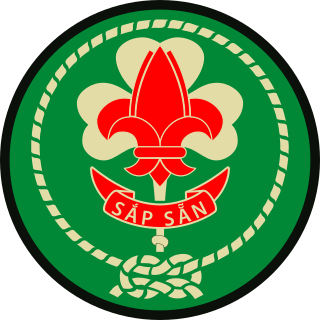
The Vietnamese Scout Association is a youth organization that was established in Vietnam and active between 1930 and 1975. The association was recognized by the World Organization of the Scout Movement from 1957 to 1975.

Suomen Partiolaiset - Finlands Scouter ry is the national Scouting and Guiding association of Finland. Scouting was founded in Finland in 1910 as part of the Russian Empire, registered with the central organization of the tsarist Russian Scout movement Русский Скаут. Finnish Scouting was among the charter members of the World Organization of the Scout Movement in 1922. Guiding started in 1910 and was among the founding members of the World Association of Girl Guides and Girl Scouts. In 1972 the Girl Guide Association and the Boy Scout Association merged and formed Suomen Partiolaiset. The association has about 75,000 members.

The Association of Belarusian Guides is the Belarusian member organization of the World Association of Girl Guides and Girl Scouts (WAGGGS), with a membership of 1,274 Girl Guides.

Russian Association of Girl Scouts is the national Girl Scouting organization of Russia. Guiding in Russia started about 1910 within the Boy Scout groups and was disbanded in the 1920s. It was restarted in 1990 as part of the Federation of Scouts of Russia and formed an independent association in 1994. The organization became an associate member of the World Association of Girl Guides and Girl Scouts (WAGGGS) in 1999 and a full member in 2008. The girls-only association has 1,158 members.
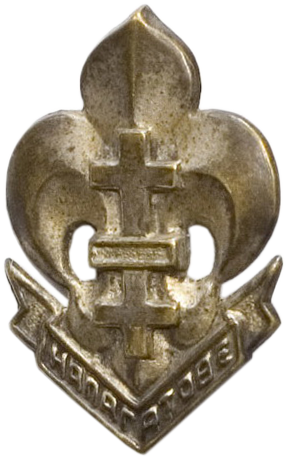
The Scout movement in Belarus consisted of 1200 members when it joined the World Organization of the Scout Movement (WOSM) in 2010. There are at least five nationwide associations as well as some regional associations. In addition, there were at one time Scouts-in-Exile in metropolitan areas of the United States, and there are presently international Scout units in Belarus.

Colonel Oleg Ivanovich Pantyukhov was the founder of Russian Scouting.
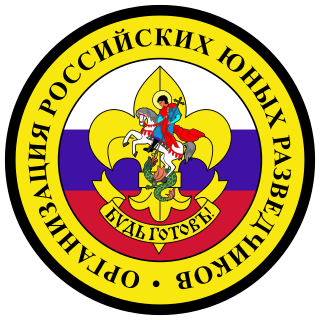
The Organization of Russian Young Pathfinders is one of the two large Russian Scouting in Exile movements. This organization has historically drawn the conservative side of the spectrum of Russians in exile.

The National Organization of Russian Scouts is one of the two large Russian Scouting in Exile movements. This organization has historically drawn the liberal side of the spectrum of Russians in exile. In 2009 NORS celebrated the centenary Jubilee of Russian Scouting.

The National Association of Russian Explorers is a youth organization founded by former Russian Scout Pavel Nikolaevich Bogdanovich, a White emigre and veteran of the Russian Imperial army, in the late 1920s after leaving the National Organization of Russian Scouts of Colonel Oleg Pantyukhov. Also the name National Organisation of Russian Pathfinders was used.

The Federation of Scouts of Russia, or FSR, was one of several national Scouting organizations formed in the Russian Federation following independence from the Soviet Union.
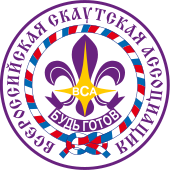
The All-Russian Scout Association is a Scouting and public youth organization in Russia. ARSA is the recognized member of the World Organization of the Scout Movement for Russia as part of the Eurasian Scout Region, joining the Asia-Pacific Scout Region in October 2023, as the Eurasian Scout Region was dissolved. ARSA represents Russia internationally in Scouting and has an estimated membership of 15,000 (2018).




























